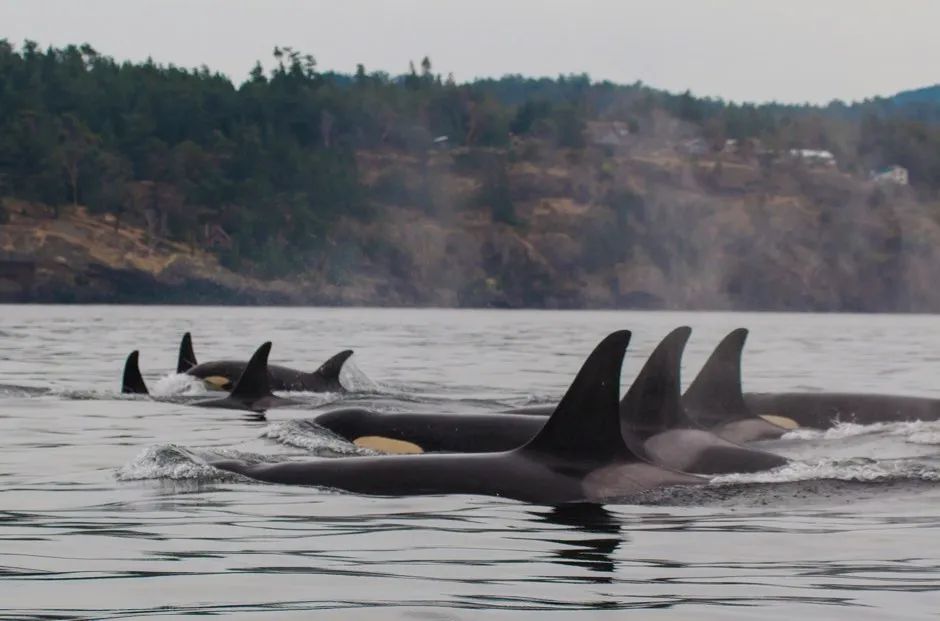Human grandmothers are not the only ones who muck in to help raise their grandchildren; older female orcas are known to do the same.
But new research has found that the “wisdom” they offer once their breeding years are over boosts the survival of calves, compared to busy grandmothers who are still able to reproduce.
Orcas, along with three other species of toothed whales and humans, are the only groups known to experience the menopause, which has long baffled scientists.
Female orcas, also known as killer whales, stop reproducing in their 30s to 40s, but just like humans they can live for many decades following menopause, while their sons and daughters typically stick with them for life.
Read more about marine mammals:
- Whales and dolphins: Why are more of them beaching around the UK?
- Killer whales' taste for shark liver sends great whites fleeing in terror
In an attempt to understand why females of these species stop reproduction well before they die, the University of York and University of Exeter – alongside the Centre for Whale Research in the US, and Fisheries and Oceans Canada – studied a group of orcas.
They found that post-reproductive grandmothers were most important to youngsters during difficult periods where the supply of salmon to eat is particularly low.The research suggests that, with more time on their fins no longer nurturing their own children, post-menopausal grandmothers can help their grandchildren instead.
If a grandmother dies, in the years following her death, her grandchildren are much more likely to die, scientists claim.

Previous studies have already provided insight on the wise nature of post-reproductive female orcas, who are understood to be more knowledgeable and provide a crucial matriarch role in teaching the group about key salmon foraging grounds.
The researchers, who published their findings in the Proceedings of the National Academy of Sciences journal, believe these benefits to the pod may be a step closer to answering the long-standing mystery of why the menopause has evolved in some species of whales and in humans.
They also say that in stopping reproduction, post-reproductive grandmothers avoid reproductive conflict with their own daughters, which risks the offspring competing for food and reducing survival rates.
Why orcas are more ‘caring’ than ‘killer’ whales
Scientists in Japan have observed orcas' caring, social behaviour firsthand. From the late 1940s to the late 1950s, Japanese whalers harvested 567 killer whales, mostly in the Sea of Okhotsk. In 1958, two Japanese scientists highlighted the social ties that made it possible to take so many of the fast-swimming species.
“In spite of their fierceness, killer whales [have] an ardent passion for their comrades,” they noted.
“When a member of their group is killed, it is possible to catch others without moving the catcher boat far away from the place [where] the first one was killed.”
Senior author of the study, Dr Dan Franks from the University of York told the PA news agency that the team are now exploring the idea that grandmothers may be babysitting too.
“We actually have a current project where we have drones or UAVs (unmanned aerial vehicles) above the whales,” he explained.
“We’re looking into this over the next three years and we think there might be things, for example, what we might call babysitting – so while the mother has gone diving for fish, grandmother will stay with her son and look after him.”
Co-author of the study, Professor Darren Croft from the University of Exeter, said: “Our new findings show that just as in humans, grandmothers that have gone through menopause are better able to help their grand offspring and these benefits to the family group can help explain why menopause has evolved in killer whales just as it has in humans.”